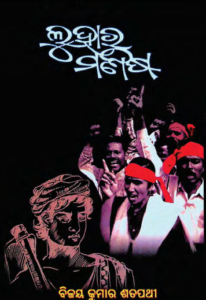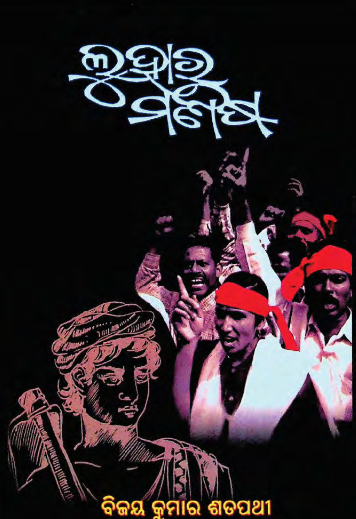Luhara Manisa, authored by Bijay Kumar Satapathy and published in 2010, is a significant contribution to Odia drama, reflecting intricate social issues and profound human emotions through compelling narratives and characters. With a keen eye on the societal fabric of Odisha, Satapathy delves into themes of love, betrayal, morality, and redemption, offering a theatrical experience that resonates with audiences both in terms of entertainment and reflection.
At the heart of “Luhara Manisa” is the exploration of the human psyche and its responses to moral dilemmas. The title itself, which translates to “The Bonded Man,” suggests a duality that speaks to the protagonist’s struggle between personal desire and social obligation. This dichotomy is brilliantly fleshed out by Satapathy, whose character development and dialogues evoke a raw and relatable portrayal of human experiences.
The narrative revolves around various characters intertwined in social, familial, and ethical complexities. Through their interactions, Bijay Kumar Satapathy adeptly illustrates the conflicts arising from societal expectations and personal ambitions. Each character, from the optimistic dreamer to the pragmatic realist, embodies various facets of society, making it a microcosm of the broader community. This detailed character weaving enhances the dramatic tension, ensuring that audiences are both intrigued and invested in their journeys.
Accompanying the main narrative is a sub-drama titled “Kalindi,” which serves as a commentary on women’s empowerment and resilience. Kalindi, a strong and independent character, challenges patriarchal norms and showcases the strength of a woman’s spirit in the face of adversity. This subplot not only enriches the main storyline but also underscores the essential theme of equality and justice within the societal framework. Bijay Kumar Satapathy uses Kalindi’s experiences to critique societal conventions and highlight the importance of women’s voices in shaping a just society.
The dialogues in “Luhara Manisa” are crafted with a lyrical quality that enhances their emotional impact. Satapathy’s use of local dialect and cultural references not only serves to ground the play in its Odia roots but also makes the characters’ struggles more relatable to the audience. The seamless integration of humor, pathos, and moral lessons creates an engaging experience that invites viewers to reflect on their own lives and societal roles.
The play also explores the idea of moral ambiguity, where characters are not strictly defined as ‘good’ or ‘bad.’ Instead, their choices reveal a complex interplay of motivations, often leaving the audience to ponder the ethical implications of their actions. This approach invites discussions on the gray areas of morality, emphasizing that human beings are shaped by both their circumstances and choices.
Luhara Manisa has been praised for its structure and pacing, allowing for moments of tension to build before releasing into cathartic exchanges that resonate with the audience. The drama’s staging and visual elements further complement the text, creating a holistic theatrical experience that engages multiple senses.
In conclusion, Bijay Kumar Satapathy’s “Luhara Manisa” stands as a significant work in Odia literature, skillfully navigating intricate emotional landscapes and societal critiques. With its poignant characters and compelling narratives, the play not only entertains but also invites audiences to engage in critical reflections about ethics, love, and the importance of social responsibility. Whether viewed on stage or read as literature, “Luhara Manisa” continues to be a profound exploration of the human condition, making it an essential part of contemporary Odia theater.
Books Info
| Books name | Luhara Manisa |
| Author | Bijay Kumar Satapathy |
| No Of pages | 99 |
| Publisher | Orissa Book Store |
| Publication | 2010 |
| Printed At | Guruprasanna Press |
| Distributor | NA |


